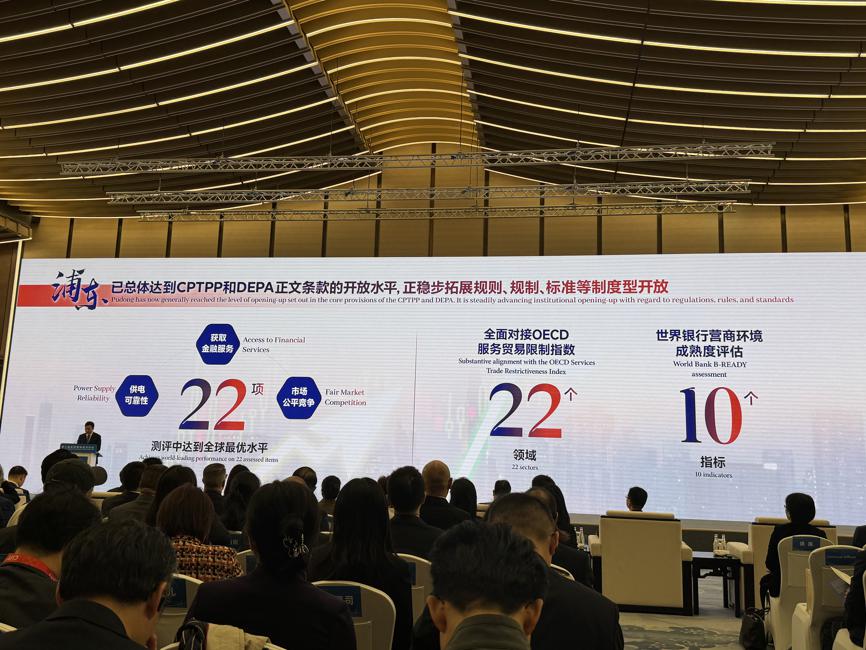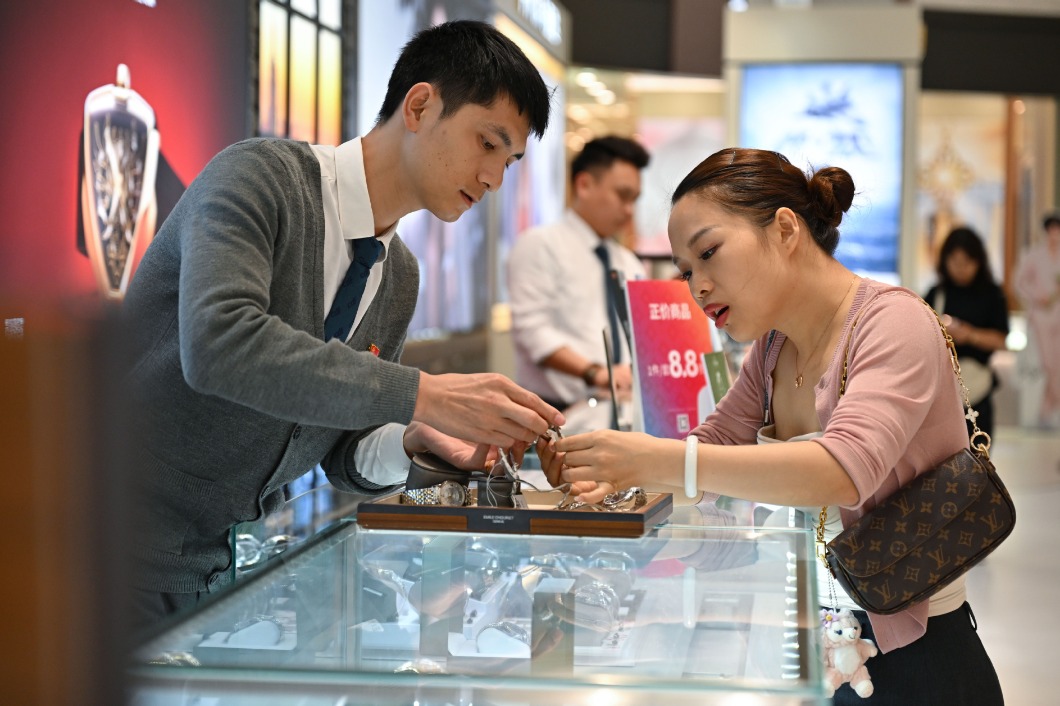Pudong advances wider opening-up to attract global investors


Pudong New Area in eastern Shanghai should advance institutional opening-up and enhance its business environment, to solidify its role as a pioneer of China's socialist modernization and prime destination for investors across the globe, said officials and business executives at a promotion conference held on Thursday during the 8th China International Import Expo (CIIE).
Shanghai Mayor Gong Zheng said that Pudong is conducting all-round relaxation in market entry regarding telecommunication, internet, education, culture and healthcare. While exploring green trade and offshore services addressing companies' outbound reaches, Pudong is striving for breakthroughs in cross-border data flow and whole-process intellectual property rights protection, he said.
To further advance industrial modernization, Pudong is making earlier plans regarding future-oriented manufacturing, information and healthcare while enriching the application scenarios for humanoid robots, low-altitude economy and new-type energies, said Gong.
Pudong will focus on land, energy, logistics and talent flow to further improve its business environment, he added.
Wu Jincheng, government head of Pudong New Area, noted the district's alignment with the 22 sectors in the OECD Services Trade Restrictiveness Index and the 10 indicators in the World Bank B-Ready assessment to advance opening-up in digital trade and trade in services, he said.
Wu also highlighted that Pudong has largely met the opening-up standards laid out in the core provisions of the CPTPP and DEPA. A WB report released in May recognized Pudong as achieving top global standards in 22 areas such as fair market competition and access to financial services.
Davide Bruschi, managing director of Casappa Hydraulics (Shanghai) Ltd, an Italy-based pump and motor company, said they will open a new factory in Pudong next year, further strengthening their position in Shanghai, which he described as becoming the group's most important hub in Asia.
China has taken a different role in international division of labor in recent years, changing from complementary cooperation to horizontal cooperation, said Jiang Xiaojuan, honorary president of the China Society of Industrial Economics.
While Pudong is well grounded with its industrial layout, it can take the lead in such transformation, with companies better prepared for fair competition and compliance, and the government providing a relaxed environment for the two-way flow of products, capital and technologies, she said.




































